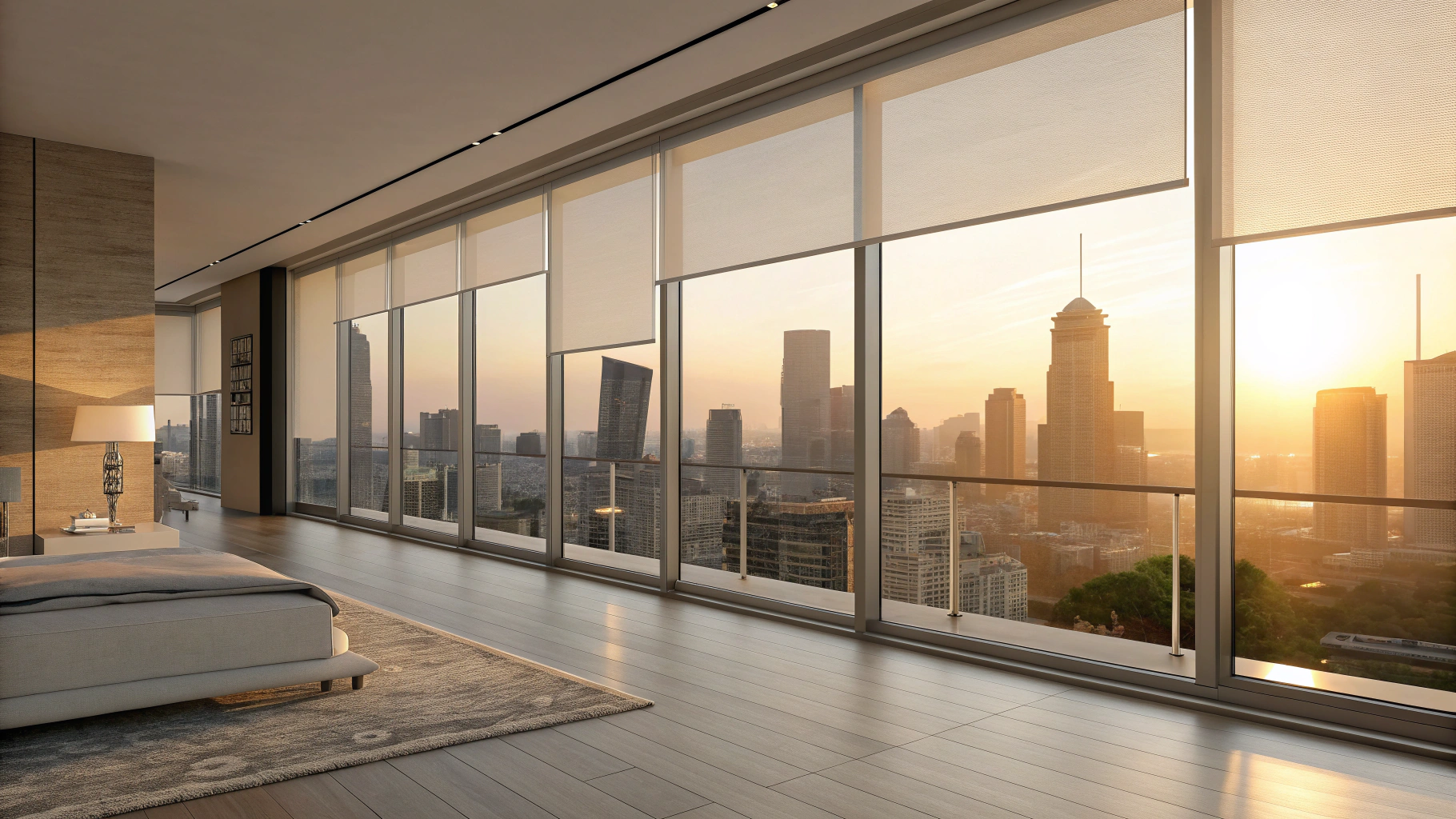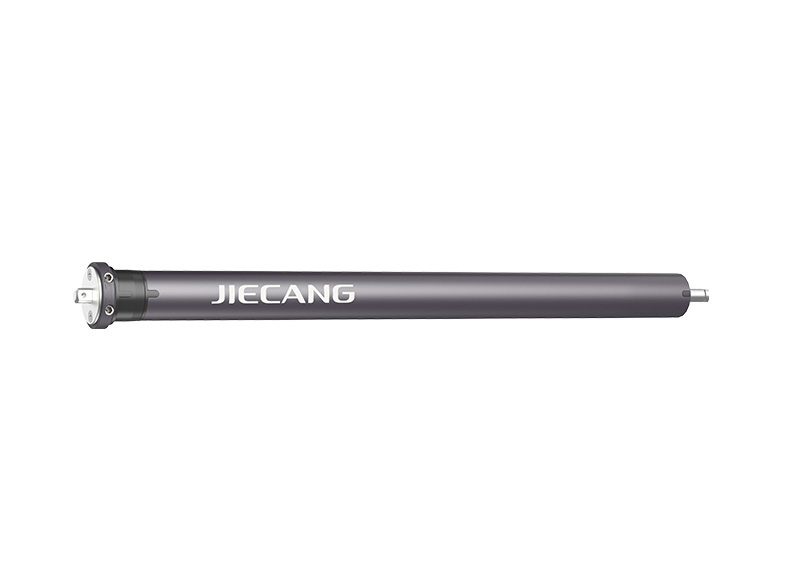In today's competitive hospitality industry, comfort is more than just a luxury; it requires precision. Hotels are turning to smart automation technologies to improve guest experiences, make operations more efficient, and enhance design. One of these innovations, smart tubular motors, is making a difference by helping hotels manage window coverings with quiet, precise, and intelligent control.
Guest comfort begins with ambiance. From the soft morning light filtering through curtains to the blackout calm of a restful night, light control plays a crucial role in shaping the guest experience. However, in many hotels, the sound of mechanical curtain systems can disrupt that tranquility.
Smart tubular motors solve this problem directly. They are designed for ultra-quiet operation below 30 to 35 dB, so blinds and curtains move almost silently. This makes them ideal for guest rooms, premium suites, and executive meeting spaces. This“silent comfort”improves the sense of quality, letting guests enjoy automation without being disturbed, even early in the morning or late at night.

Aesthetic integrity is vital in hospitality interiors. Tubular motors are engineered to fit directly inside roller or curtain tubes, eliminating visible hardware and maintaining a clean, architectural look. This integration ensures that technology complements, rather than competes with, the interior design.
In luxury rooms where visual clutter is not allowed, hidden motor systems keep the space looking clean and simple, with no chains, cords, or bulky drives. This subtle touch fits well with modern hotel design and high-end brand standards.
Today’s hotel guests expect personalized experiences. Smart tubular motors provide this through flexible control options like remote controls, wall switches, mobile apps, voice assistants, or pre-set scenes. Hotel operators can set up daily routines such as:
-Morning wake scenes, gradually opening curtains to welcome daylight
-Evening blackout scenes, ensuring complete privacy and rest
-Conference presets, adjusting blinds automatically for optimal presentation lighting
These features go beyond just guest comfort. When connected to building automation systems (BAS) and IoT platforms like KNX, BACnet, Zigbee, or Matter, they allow for centralized control. Window coverings can adjust automatically based on occupancy, daylight, or temperature, helping save energy and improve operations.
Sustainability is now essential in hospitality. Automated shading with smart tubular motors can lower solar heat gain, reduce glare, and ease the load on HVAC systems, which cuts energy costs. When linked to hotel management systems, blinds can adjust automatically by closing during peak sunlight to reduce cooling needs or opening to let in natural light and save on artificial lighting.
This smart coordination helps hotels earn green building certifications and improves guest comfort at the same time, creating a balance between luxury and sustainability.
Hotels operate around the clock, so their automation systems must always work. Choosing high-quality tubular motors from certified manufacturers ensures reliable, long-term use. Top models are built for smooth performance, overload protection, and obstruction detection, which helps prevent wear or failure in busy commercial environments.
In addition, grouped control and multi-channel operation let entire suites, lobbies, or meeting rooms move multiple blinds or curtains together with one command. This makes both the look and the control of the space more streamlined.

Not all hotels are newly built. Many operators need to upgrade older properties without disturbing guests. Wireless or battery-powered tubular motors are a good solution for retrofits. They remove the need for major rewiring, making it easier to modernize during renovations or phased upgrades.
Proper installation planning is crucial for performance and aesthetics. Engineers and designers must coordinate:
-Torque and load capacity to match curtain weight and size
-Tube diameter and clearance for seamless fitment
-Wiring or conduit paths aligned with lighting and HVAC layouts
-Travel limit settings and scene programming for user convenience
When done correctly, the installation is hidden, leaving only quiet and smooth movement.
Selecting the right motor system requires striking a balance between performance, compatibility, and service support. For hospitality environments, consider:
|
Specification Factor |
Key Recommendation |
Impact on Operations |
|
Noise Level |
< 35 dB ultra-quiet motors |
Preserves guest tranquility |
|
Control Protocols |
Compatible with KNX, BACnet, Zigbee, Matter |
Enables full building integration |
|
Power Options |
Wired, wireless, or battery |
Supports both new builds and retrofits |
|
Load Capacity |
Match torque to curtain weight |
Ensures smooth, safe movement |
|
Safety Features |
Overload & obstruction detection |
Prevents system damage and guest accidents |
|
Service Support |
Local parts & maintenance agreements |
Reduces downtime and lifecycle cost |
These criteria ensure the system is technically fit and works reliably in large hospitality projects.
Smart tubular motors offer more than just guest comfort. Automating shading reduces manual work for housekeeping, lowers energy use, and removes the need for maintenance on cords or chains. Over time, these savings add up to lower costs and better returns for the property.
Unified control of blinds, lighting, and HVAC systems also helps staff work more efficiently. It allows central management of hundreds of rooms with very little effort.
Ultimately, automation in hospitality should serve people discreetly, without drawing undue attention. Smart tubular motors excel at this by operating quietly, reliably, and out of sight. Whether they are moving blinds in a ballroom or letting in morning light in a penthouse, they help create a feeling of effortless luxury.

As hotels transition toward smarter, greener, and more guest-focused operations, smart tubular motors are becoming a standard feature in high-end hospitality design. They combine quiet comfort with smart control, providing architects, designers, and operators with a technology that enhances both aesthetics and efficiency.
For hospitality developers and system integrators, the next step is clear: choose ultra-quiet, automation-ready tubular motors from trusted manufacturers to make sure every room offers comfort, silence, intelligence, and style.
Are you ready to upgrade your next hospitality project? Work with JIECANG, a certified automation specialist, to add smart tubular motor systems that bring real silent comfort to every room.
Ф25mm DC tubular motor - Battery Powered
Ф35mm AC Tubular motor-Mechanical Limit
Curtain motor - Built-in WiFi module